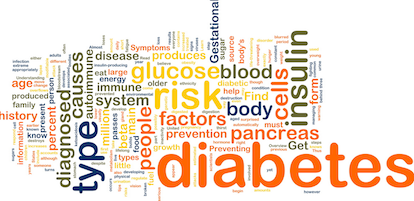Diabetes is a very common diagnosis in today’s society. There are a lot of advances in the diagnosis and treatment of the disease making the occurrence more often but the care much better. There are basically three types of diabetes that people should be familiar with Type 1 Diabetes also known as juvenile onset, Type 2 Diabetes also known as adult onset, and Gestational Diabetes. These three types of the disease are all similar in the basic effect but are different in treatment, duration and how they affect a person
Type 1
Type 1 or Juvenile Onset Diabetes is a form of the disease that usually is diagnosed in a child or young adult. In this type of the disease a person is unable to produce the hormone insulin. Without insulin the body cannot change the sugar into the energy it needs for living. This is often a very difficult diagnosis because it in a young persons life and will be something they have to live with forever. The treatment for Type 1 is insulin, diet control and keeping active. With good intervention and treatment the young person can live a full and productive life.
Type 2
Type 2 or Adult Onset Diabetes is usually diagnosed later in life. This occurs when the body is not able to produce enough insulin or the body is not able to easily use the insulin that is produced. Sometime the form of the disease occurs because a person is overweight changing the need for insulin and its affect. Type 2 is a difficult diagnosis because a person who is very set in their lifestyle has to change the way they live and the food they eat. The treatments for Type 2 include medications, diet, and exercise.
Gestational Diabetes
The gestational form of this disease occurs during pregnancy. It is thought that during pregnancy a woman’s body releases certain hormones that prevent the release or decrease the release of insulin. This diagnosis is especially difficult because the raised blood sugar levels can be harmful to the mother and to the unborn baby. The baby will not have normal development if the blood sugars are not controlled. The good news with this diagnosis is that it usually resolves with the delivery of the baby, although, the mother is at increased risk for developing Type 2 Diabetes later in life. Treatment for gestational diabetes will include a diabetic diet and if necessary medication.

No Comments